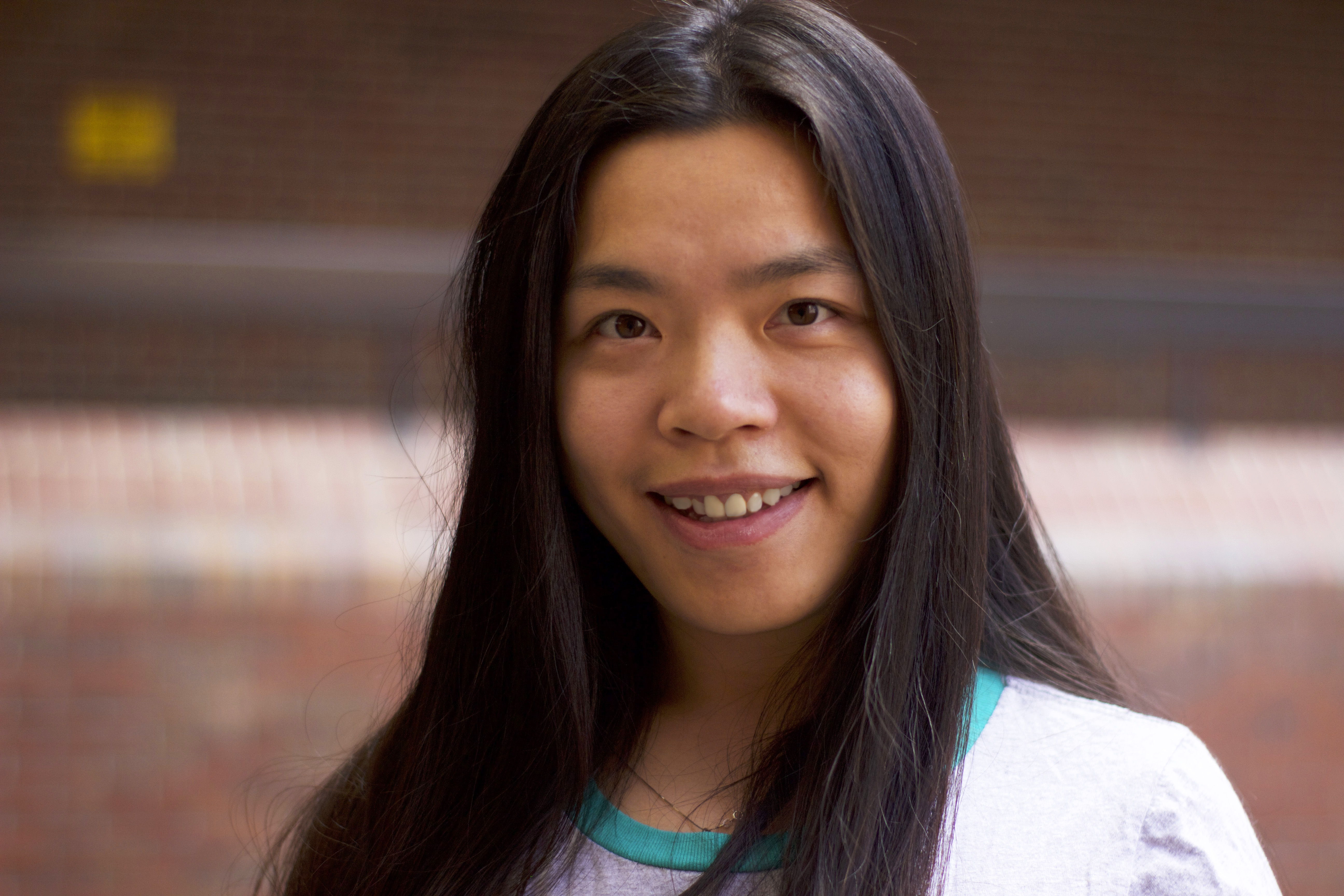Meet Ke Huang (Tracy) Huang, a third year doctoral student at the Anita Zucker Center from Beijing, China. Dedicated to creating better educational opportunities for children with autism (especially those aged 3-5) and children with social-emotional challenges, Tracy works with Dr. Maureen Conroy on the Center’s BEST in CLASS projects. Her primary responsibility on the projects is developing and adapting measurements for the project and data management.

Alexis Brown: Why did you become involved with work in early childhood?
Tracy Huang: During my master’s degree, I had opportunities to work with students of different ages, but I enjoyed working with the younger ones the most because they have so much potential to learn and grow.
For students who attend kindergarten to middle school, I feel the Chinese government has a lot of resources in place for them. However, that is not the case for the very young ones, from birth to age five. In my country, early childhood education is not covered as part of a government-sponsored education for all children. I think that’s an issue that we need to work on to achieve better results for young children.
AB: I agree! What’s something interesting about early childhood that most people don’t know?
TH: When people think about young children, they assume they are naive and that you need to teach them to do things. While you do need to teach young children and help them learn, there are a lot of things that you can learn from them. They can also teach us!
AB: What’s something interesting that you’ve learned from a young child?
TH: I was working in an international school before I moved here. My students came from different countries and always taught me new things from different cultures. They always created new ways to play and learn things, which was great!
AB: What’s the coolest thing about your work at the Center?
TH: I think the coolest thing is that everyone comes here with different backgrounds and expertise, so we have a variety of perspectives. Some people came here as program administrators, so they know a lot about laws and policy. Some others, like me, have a background in research. I feel like everyone has their strengths and we come together to create a whole that is greater than the sum of its parts.
AB: What specific roles have you played on Center projects?
TH: I work on the BEST in CLASS-Web project with Dr. Conroy. She also provides mentoring to me with my own projects. The titles of some projects that we are working on include:
- Effectiveness of peer-mediated iPad games on social skills of young children with ASD.
- A meta-analysis of touch-screen based interventions to improve social competence in young children with ASD.
- A systematic review of research-based family engagement practices in center-based early intervention and early childhood special education programs.
AB: Wow – those are awesome! What are some things you’ve learned about social-emotional development or challenging behavior from your work on various BEST in CLASS projects?
TH: I work more with children who exhibit challenging behaviors. Children engage in challenging behaviors for different reasons. Some children need more adult/peer attention, some children want to access specific items or activities, and there are also some children trying to escape from attention or tasks. As a classroom teacher or a parent, it’s helpful to think more about the function of these challenging behaviors, what behaviors might be taught to replace or eliminate the challenging behavior, and how to set up classroom activities and give tailored support to the child.

Earlier this year, Tracy attended IMFAR, a conference focused on autism research in San Francisco.
AB: What’s a way that your work at the center has impacted your perspectives about early childhood?
TH: I think the first thing I learned from the courses in my first year is how important the early childhood years are for current and future success.
AB: Do you have any advice for parents and caregivers who have young children with autism?
TH: There are a lot of existing evidence-based practices for children with ASD. When selecting a practice, we should always consider the strengths of the child and the family, and make plans based on these strengths to expect better outcome for both the child and the family. Parenting for children with ASD is very challenging. How parents function directly impacts a child’s function. It is important for parents to spend time to adjust their emotion and build up strong personal characteristics and stable family environment to cope with the challenges.
AB: What’s a challenge that you want to tackle for the benefit of children and their families?
TH: I would like to engage families as participants in their child’s development and learning. I think it’s important to let them know how important a role they have and what kinds of things they can do to support their child and his or her development and learning. I think that’s one thing I want to do.
AB: Thank you so much Tracy!
Story and Portrait by: Alexis Brown
